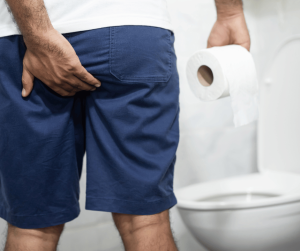Introduction
Do you find yourself making frequent trips to the bathroom? Dealing with loose stools and abdominal discomfort can be frustrating and disruptive to your daily life. In this blog post, we will explore the causes, symptoms, and remedies for pooping too often. Whether you’re experiencing this issue occasionally or on a regular basis, understanding the underlying factors and knowing how to manage it can help improve your digestive health and overall well-being.
Causes of Pooping Too Often
Frequent bowel movements can be caused by various factors. One common cause is diet. Consuming excessive amounts of fiber or spicy foods, as well as food intolerances or allergies, can irritate the gut and lead to loose stools and increased bowel movements. Stress and anxiety can also impact gut function, as the gut and brain are closely connected through the gut-brain axis. Medical conditions such as irritable bowel syndrome (IBS), inflammatory bowel disease (IBD), and food poisoning can also cause increased bowel movements. Additionally, certain medications, such as laxatives and antibiotics, can disrupt the normal bowel pattern.
Symptoms of Pooping Too Often
The main symptom of pooping too often is increased frequency of bowel movements. This can be accompanied by loose or watery stools, urgency, and a sense of incomplete bowel emptying. Abdominal pain, cramping, bloating, and gas may also be present. These symptoms can be uncomfortable and may interfere with daily activities, work, and social life.
Health Risks of Pooping Too Often
While occasional changes in bowel movements are normal, frequent loose stools can have potential health risks. One risk is dehydration, as increased bowel movements can lead to fluid loss. This can result in electrolyte imbalances and dehydration, especially in vulnerable populations such as the elderly, children, and individuals with certain health conditions. Frequent bowel movements can also lead to nutrient deficiencies, as the body may not have enough time to absorb essential nutrients from food. Over time, this can impact overall health and well-being. Moreover, disruptions in gut microbiota, the beneficial bacteria in the gut, can occur with frequent bowel movements, which may negatively impact gut health and immune function.
Remedies for Pooping Too Often
The good news is that there are steps you can take to manage frequent bowel movements. Here are some remedies to consider:
Evaluate your diet: Pay attention to your food intake and identify any triggers that may be causing frequent bowel movements. Consider reducing intake of high-fiber or spicy foods, and be mindful of any food intolerances or allergies.
Manage stress: Practice stress management techniques, such as deep breathing, meditation, or yoga, as stress can impact gut function.
Stay hydrated: Drink plenty of water throughout the day to replenish any fluid loss due to increased bowel movements.
Consider over-the-counter medications: Antidiarrheal medications, such as loperamide, can help slow down bowel movements and provide temporary relief. However, it’s important to use them as directed and consult with a healthcare professional if symptoms persist.
Lifestyle changes: Regular exercise, getting enough sleep, and maintaining a healthy lifestyle can promote regular bowel movements and overall gut health.
Prevention of Pooping Too Often
Preventing frequent bowel movements involves maintaining good gut health. Here are some preventive measures to consider:
Eat a balanced diet: Consume a diet that is rich in fiber, but not excessive, and includes a variety of foods to promote healthy digestion.
Manage stress: Find effective ways to manage stress, such as through regular exercise, meditation, or talking to a therapist.
Stay hydrated: Drink enough water throughout the day to keep your body hydrated and support healthy bowel movements.
Avoid triggers: Identify and avoid any foods or beverages that may trigger frequent bowel movements, such as spicy foods, caffeine, or alcohol.
Practice good hygiene: Wash your hands thoroughly before and after using the bathroom to prevent the spread of harmful bacteria and viruses that can cause digestive issues.
Seek medical advice: If you are experiencing frequent bowel movements on a regular basis or if your symptoms are severe, it’s important to consult with a healthcare professional for proper evaluation and diagnosis. They can provide personalized advice and treatment options based on your specific condition.
Conclusion
Pooping too often can be uncomfortable and disrupt daily life, but it’s important to understand the underlying causes and implement remedies to manage the issue effectively. By evaluating your diet, managing stress, staying hydrated, and making lifestyle changes, you can promote healthy bowel movements and prevent the recurrence of frequent bowel movements. If symptoms persist, it’s best to seek medical advice for proper evaluation and management.
References
Share this with your friends








